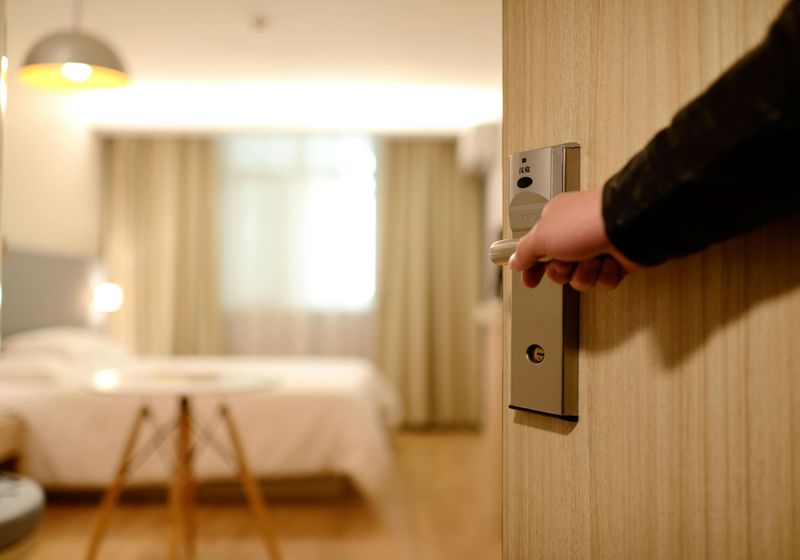8 Signs Your Teen Could Use a Bit More Emotional Breathing Room
Parenting a teenager feels like navigating a maze with constantly changing walls. One day they want to tell you everything, and the next, they seem distant and unreachable. Many teens struggle to communicate their need for independence and emotional breathing room. Understanding these silent signals can help you support their development while maintaining a healthy relationship during these crucial years.
1. Suddenly Going Silent During Family Time
Your once-chatty kid now sits at the dinner table scrolling through their phone or giving one-word answers. This withdrawal isn’t necessarily defiance—it’s often a protective measure. Teens processing complex emotions sometimes need to retreat inward.
When overwhelmed by social expectations, family dynamics can feel like another performance they’re too exhausted to give. Their silence signals they need processing time, not interrogation.
Try creating no-pressure zones where conversation isn’t required. Sometimes the best support is simply existing together without demands for interaction.
2. Bedroom Door Stays Closed More Often
Remember when your child wanted the door open at night? Now it’s firmly shut whenever they’re home. Their bedroom has transformed from just a sleeping space into their sanctuary—the one place they can control in a world that often feels overwhelming.
Behind that door, they’re not just avoiding you; they’re creating identity through music, journaling, or simply sitting with their thoughts without an audience. This physical boundary represents their developing need for mental privacy.
Respect this space while maintaining reasonable house rules about check-ins and safety.
3. Irritation at Simple Questions
“How was school today?” somehow becomes the most annoying question in the universe. Their exaggerated sighs and eye-rolls aren’t personal attacks—they’re expressing frustration at feeling constantly monitored.
Each question, no matter how innocent, can feel like a spotlight when teens are trying to develop autonomy. Their brains are rewiring to prioritize independence, making even basic inquiries feel intrusive.
Consider replacing direct questions with open invitations: “I’m around if you want to talk about anything.” This approach hands them control over the conversation, respecting their growing need for self-direction.
4. Headphones Become a Permanent Accessory
Headphones aren’t just for music anymore—they’re a portable privacy shield. When your teen wears them around the house, they’re creating an invisible boundary that says “not available right now.”
Music and podcasts provide emotional regulation during the turbulent teenage years. The content they’re consuming helps them explore identities and process feelings without having to explain themselves to anyone.
Rather than seeing headphones as rejection, recognize them as a healthy coping tool. Establish reasonable tech-free zones while respecting that this audio cocoon serves an important developmental purpose.
5. Spending More Time with Friends Than Family
Suddenly your presence has been downgraded while friends have become the center of your teen’s universe. This natural shift reflects their developmental stage—peers now provide the validation and understanding they crave.
With friends, teens can try on different versions of themselves without the weight of family expectations. These relationships offer practice grounds for adult social skills and identity formation.
While it may sting to be replaced as their primary social circle, this friend-focused phase helps them build crucial relationship skills. Stay interested in their friendships without interrogating them about every social interaction.
6. Emotional Reactions Seem Disproportionate
A simple comment about homework triggers an emotional explosion that seems to come from nowhere. These heightened reactions often signal emotional overload—your teen’s brain is processing complex feelings without mature regulation tools.
When emotions feel too big to handle, teens may lash out as a way of creating distance. Their dramatic responses aren’t manipulation but desperate attempts to release pressure without vulnerability.
Give them space during these moments instead of demanding immediate conversation. Later, when emotions have settled, gentle acknowledgment of their feelings without judgment can help them develop better emotional vocabulary.
7. Sudden Interest in Solo Activities
Your formerly social butterfly now spends hours drawing, writing, or playing guitar alone. This shift toward solitary pursuits isn’t concerning—it’s actually healthy exploration. Creative activities provide emotional outlets that words often cannot.
Through these solo ventures, teens process their changing identity and growing independence. The journal they won’t let you read or the music they create becomes their voice when speaking feels too vulnerable.
Support these interests by providing resources without hovering. Their personal projects are building resilience and self-understanding, essential skills they’ll carry into adulthood.
8. Resistance to Family Traditions or Routines
Family movie night suddenly feels “boring” and holiday traditions seem “pointless.” This resistance isn’t rejection of family values but exploration of personal ones. Your teen is questioning inherited customs as they build their own worldview.
Adolescents need to push against established patterns to discover which traditions genuinely resonate with their emerging identity. What looks like rejection is actually healthy discernment.
Consider involving them in reimagining family traditions rather than forcing participation. Allowing them to suggest modifications honors their need for autonomy while preserving family connections on new terms.










Comments
Loading…